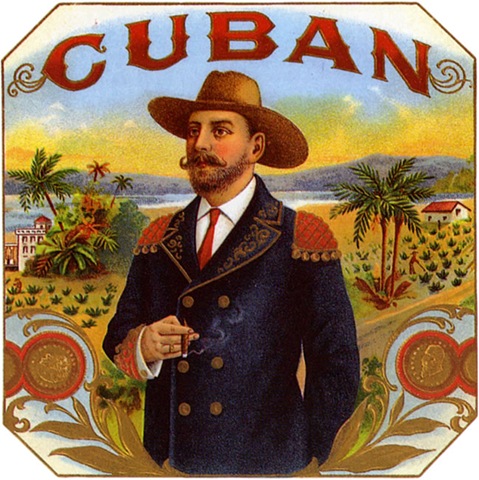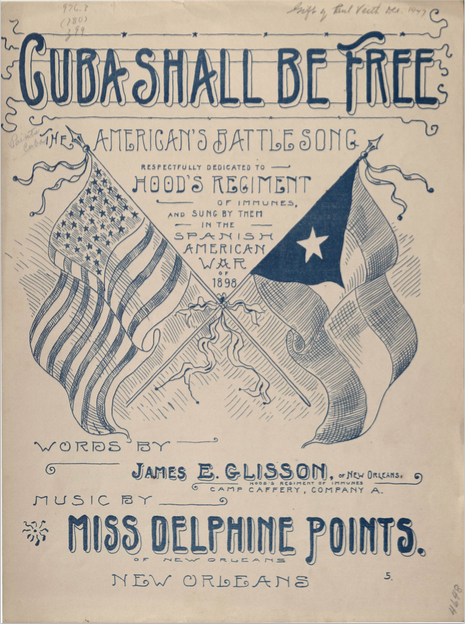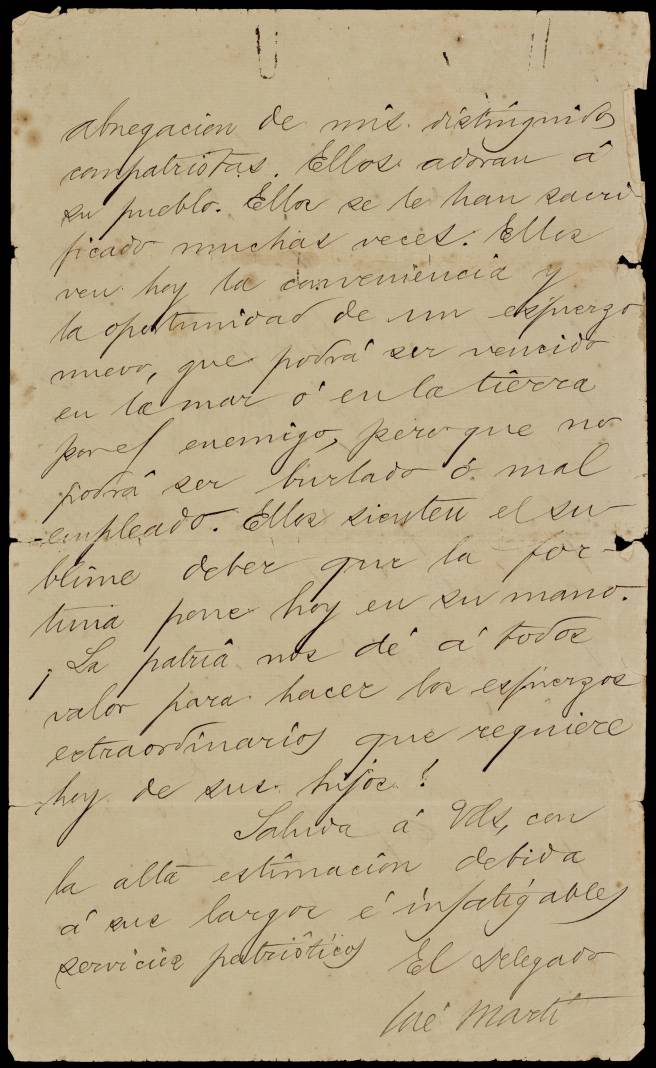Above: The founders of the Cuban Revolutionary Party, and organization in which Martí was highly involved. Below: The label from a Cuban cigar, one of the defining products of Cuba.

What does it mean to be Cuban? Jose Martí, famous Cuban leader and revolutionary outlines his idea of authentic Cuban life in government in his most famous essay, “Nuestra América”. During a time when Cuba was struggling for independence from Spain and fending off annexation by the United States, Martí published this piece from New York in 1891. It defines Cuba as a highly unique nation, marvelous in its own way. Martí employs a comparison to Greece, an ancient prosperous and highly respected society-
“Our own Greece is preferable to the Greece that is not ours; we need it more”. This line culminates Martí’s main message throughout the essay- that Cubans need to recognize their own unique culture and society with a sense of pride, and use the knowledge of their country to move forward in the best way possible for Cuba.
Martí uses the symbol of an octopus to represent his fears of U.S. annexation of Cuba. He writes, “Over some republics, the octopus sleeps…the hour is near when [Cuba] will be approached by an enterprising and forceful nation that will demand intimate relations with her”. This fear was realized in 1898 with the U.S. intervention in Cuba, squashing the Cuban Revolutionaries and forcing them to lay down their arms. This song, produced and celebrated in the United States, shows the U.S. excitement about their annexation. The lyrics, written and produced in English, victimize the Cuban people and play the Americans as the role of the hero.



These lyrics degrade the Cuban people in the exact way that Martí described in his essay. He adamantly believed that “the government must be born on the country”, not imposed by a far-reaching outside country. Martí wrote in a letter during this time “que es la hora suprema”, meaning the most important time, when the Cuban people need to show their strength and resilience.

The song is called “The American’s Battle Song” rather than “The Cuban’s Battle Song”, implicating that the United States is fighting for themselves, not the Cubans, despite the message they attempt to relay through the lyrics.
Living in New York, Martí was able to bear witness to the American propaganda and comment on it for the benefit of his Cuban people.

In this excerpt from a letter written in the 1890s, Martí writes,
“They see today the benefit and the opportunity of a new effort, that is able to be defeated in the sea or on the land by the enemy, but is not able to be misused or ridiculed. They feel the sublime duty that they have today in their hands. We will have the courage to complete the extraordinary efforts that are required today for our sons
Regards to you with that respect as you should have for your long and tireless patriotic services
The Delegate,
Jose Martí”
While it is not known who he writes to in this letter, he is clearly inspiring a group of Cubans to take on the fight for independence, employing pathos to pull at their heartstrings, implying that these efforts are needed for the wellbeing of their children.
This source proves that not only did Martí care strongly for this cause for political reasons, but personally he was dedicated to improving Cuba and the Cuban people for future generations of Cubans.
Through personal letters, music, and images, unseen layers of history can be discovered, revealing truths about the intentions and thoughts of all parties involved.
Sources:
“Nuestra América” by Jose Martí
“Fragment of letter written by José Martí” http://merrick.library.miami.edu/cdm/compoundobject/collection/chc5066/id/6/rec/1
“Cuba Shall Be Free” http://cdm16313.contentdm.oclc.org/cdm/singleitem/collection/p15140coll47/id/1122/rec/2
“Founders of the Authentic Cuban Revolutionary Party” http://merrick.library.miami.edu/cdm/singleitem/collection/cubanphotos/id/805/rec/2
“Cigar Label” http://finetobacconyc.com/2011/01/15/saturday-cigar-survey-are-cuban-cigars-overrated/